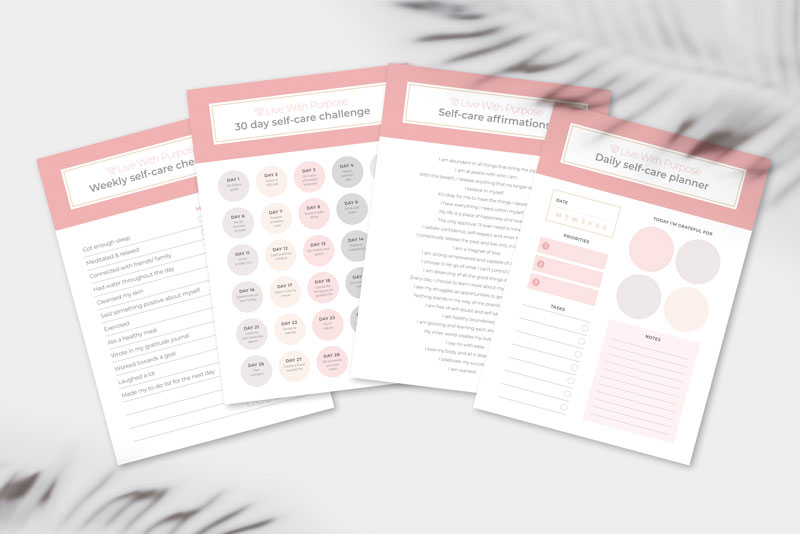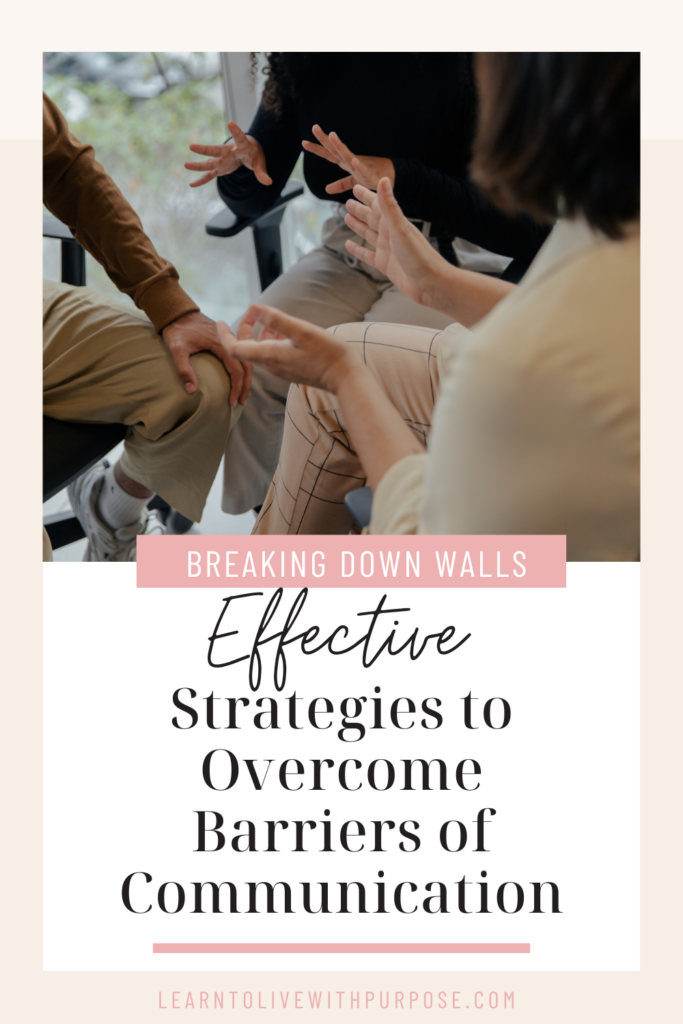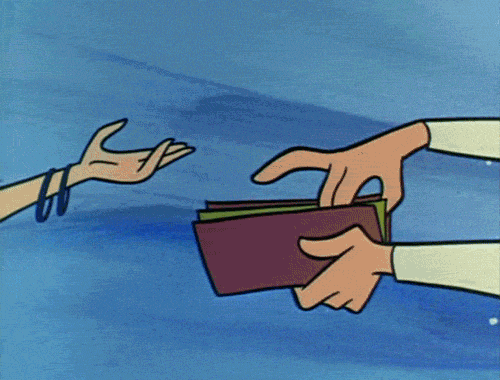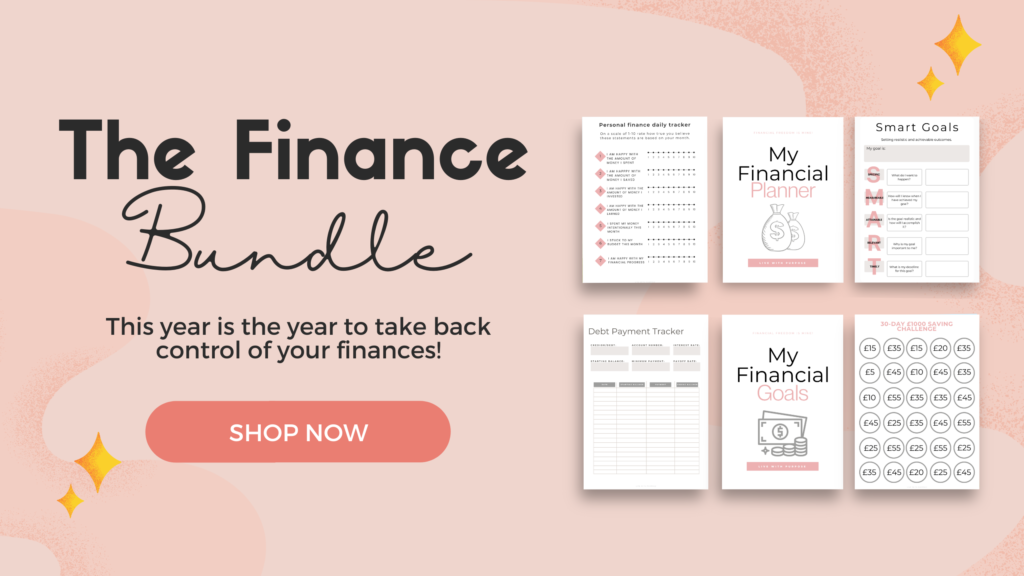
Communication is the lifeblood of relationships, both personal and professional. However, barriers to effective communication can hinder the exchange of ideas, lead to misunderstandings, and strain relationships. 🫠
In this comprehensive guide, we will explore common barriers to communication and provide practical strategies to overcome them.
Whether you’re navigating workplace dynamics, fostering better connections with friends and family, or seeking to improve your overall communication skills, these insights will help you break down the walls that impede effective communication. 🙂
Let’s get started!
Understanding Barriers to Communication:
1. Lack of Clarity and Precision:
One of the fundamental barriers to effective communication is a lack of clarity. Vague or imprecise messages can lead to confusion and misinterpretation. It’s essential to articulate your thoughts clearly, using precise language and providing relevant details to ensure your message is accurately received. 😊
2. Emotional Barriers:
Emotional barriers, such as stress, anxiety, or strong emotions, can impede communication. When individuals are emotionally charged, they may struggle to express themselves clearly or be receptive to others. Managing emotions and creating a calm environment are crucial for effective communication.

3. Cultural and Language Differences:
Cultural and language diversity can create barriers to communication. Differences in language proficiency, communication styles, and cultural norms may lead to misunderstandings.
To overcome this barrier, it’s essential to foster cultural awareness, be patient with language differences, and use clear and straightforward language. 😊
4. Noise and Distractions:
Physical and environmental factors, such as noise and distractions, can interfere with communication. Whether it’s background noise, technological disruptions, or a busy environment, minimising distractions enhances the clarity and effectiveness of communication. 👂

5. Assumptions and Stereotypes:
Preconceived assumptions and stereotypes can create barriers by influencing how we interpret messages. Avoid making assumptions about others’ perspectives or intentions. Instead, approach communication with an open mind, seeking to understand diverse viewpoints without judgment. 🧠
6. Lack of Feedback:
Communication is a two-way process, and the absence of feedback can be a significant barrier. Encourage open dialogue, actively seek input from others, and provide constructive feedback. Creating a feedback loop ensures that messages are received and understood and not going in one ear and out the other.

7. Poor Listening Skills:
Ineffective listening is a pervasive barrier to communication. When individuals fail to actively listen, they miss important details, leading to misunderstandings. Improving listening skills involves giving full attention, avoiding interruptions, and practicing empathy to understand the speaker’s perspective. 😊
8. Power Dynamics and Hierarchies:
Unequal power dynamics or hierarchies within relationships or organisations can stifle open communication. Those in lower positions may feel hesitant to express their thoughts or concerns. Fostering an inclusive and open communication culture helps overcome these power-related barriers. 🫂
Strategies to Overcome Communication Barriers:
1. Prioritise Clarity in Communication:
- Articulate Clearly: Use clear and concise language when conveying your message. Avoid jargon or overly complex terms that may confuse the listener.
- Provide Context: Offer relevant background information to ensure your message is fully understood. Context helps the listener connect the dots and interpret your message accurately.
- Encourage Clarification: Create an environment where others feel comfortable seeking clarification. Encouraging questions can help address potential misunderstandings. 🤗

2. Emotional Intelligence and Regulation:
- Self-Awareness: Develop an understanding of your own emotions. Recognise how emotions may impact your communication style and be mindful of potential emotional triggers.
- Empathy: Practice putting yourself in others’ shoes. Empathetic communication involves understanding others’ perspectives and responding with sensitivity.
- Stress Management: Learn effective stress management techniques, such as deep breathing or mindfulness, to regulate emotions during challenging conversations.
Want to learn more about emotional intelligence? Check out this blog here: How to practice emotional regulation – tips for adults on how to cope
3. Cultural Sensitivity Training:
- Cultural Awareness: Educate yourself about different cultures, communication styles, and customs. A culturally aware approach fosters understanding and respect.
- Language Simplification: In multilingual settings, use simple language and avoid idioms or slang that may not translate well. Visual aids can also help enhance understanding. 🤗
- Inclusivity: Create an inclusive environment that values and celebrates cultural diversity. Encourage open discussions about cultural differences to promote understanding.
4. Create a Distraction-Free Environment:
- Choose Appropriate Settings: Select quiet and conducive environments for important conversations. Minimse disruptions by choosing a location with minimal background noise.
- Digital Etiquette: In digital communication, turn off notifications and ensure a stable internet connection. This helps maintain focus during virtual meetings or discussions. 🧑💻
- Active Presence: Demonstrate active presence by giving your full attention to the speaker. Make eye contact and eliminate distractions to signal that you are fully engaged.

5. Challenge Assumptions and Stereotypes:
- Open-Mindedness: Approach conversations with an open mind, avoiding preconceived notions. Be willing to challenge your assumptions and consider alternative perspectives.
- Promote Diversity and Inclusion: Actively promote diversity and inclusion in your personal and professional spheres. Encourage dialogue that challenges stereotypes and fosters a culture of acceptance.
- Educate Others: Share information that challenges common stereotypes. Education is a powerful tool in breaking down barriers and promoting understanding. 📖
6. Establish a Feedback Culture:
- Encourage Open Dialogue: Foster an environment where open dialogue is encouraged. Create channels for constructive feedback and ensure that all team members feel comfortable expressing their opinions. 🗣️
- Regular Check-Ins: Conduct regular check-ins to gather feedback on communication processes. Identify areas for improvement and implement changes based on the feedback received.
- Model Constructive Feedback: Lead by example by providing constructive feedback. Demonstrating how to give and receive feedback creates a culture of continuous improvement.
7. Enhance Listening Skills:
- Active Listening Techniques: Practice active listening by giving your full attention to the speaker. Avoid interrupting and provide feedback to demonstrate that you are engaged.
- Paraphrasing: Paraphrase the speaker’s message to confirm understanding. This not only clarifies information but also signals to the speaker that you are actively processing their words. 💬
- Empathetic Listening: Cultivate empathetic listening by trying to understand the emotions behind the words. Consider the speaker’s perspective and respond with empathy.

GRAB YOURSELF OUR FREE SELF-CARE BUNDLE!
It’s time to take some time out for yourself love! Check out this four-page bundle of self-care goodness that you can use to relax, refresh and rejuvenate. You deserve it sis.
Pop your info in and download your bundle now ❤️
8. Promote Inclusive Communication:
- Equal Participation: Encourage equal participation in discussions, regardless of hierarchical positions. Create platforms where everyone has the opportunity to voice their opinions and ideas.
- Team-building Activities: Foster a sense of unity within the team through team-building activities. Shared experiences can break down barriers and create a more cohesive group.
- Leadership Modeling: Leaders should model inclusive communication. By demonstrating openness to diverse perspectives and ideas, leaders set the tone for an inclusive organisational culture. 🏬
Real-Life Applications:
1. Workplace Communication:
- Clear Communication Channels: Establish clear communication channels within the workplace. This includes well-defined reporting structures, open-door policies, and regular team meetings.
- Conflict Resolution Workshops: Conduct workshops on conflict resolution to equip employees with the skills needed to navigate disagreements effectively. Emphasise active listening and constructive feedback.👂
2. Personal Relationships:
- Quality Time: In personal relationships, allocate quality time for meaningful conversations. Create an environment where both partners feel comfortable expressing their thoughts and emotions.
- Shared Activities: Engage in shared activities to strengthen bonds. Activities that foster communication, such as cooking together or participating in a hobby, provide opportunities for connection. 👨👩👧
Do you want to know your partner better? Check out our Relationship Planner.
3. Conflict Resolution:
- Mediation Training: Provide mediation training for individuals involved in conflict resolution. Equipping team members with mediation skills enhances their ability to facilitate productive discussions. 🧘♀️
- Establishing Common Ground: Identify common ground during conflicts. Finding shared values or goals can serve as a foundation for resolution and create a more collaborative atmosphere.
Conclusion:
Effectively overcoming barriers to communication involves a multifaceted approach that integrates self-awareness, empathy, and a commitment to fostering an inclusive environment. By implementing these strategies in various aspects of our lives, we can dismantle communication barriers and pave the way for stronger connections, collaboration, and understanding. 🤗
As we actively apply these strategies, we contribute to creating a culture of effective communication—one where diverse perspectives are valued, feedback is embraced, and relationships thrive. Breaking down the walls that hinder communication is a transformative journey that leads to more meaningful connections and a more harmonious and connected world.
Pin this post for a reminder 📌 👇

Related Blog
Things to Say “No” to for you to Live a Happier Life
How to Stop Settling For Less Than You Deserve
How to Become the Best Version of Yourself: A Guide For 20-Somethings
Do you find yourself in a rut and want to stop living from paycheck to paycheck every month? Want to break the cycle and learn how to stop having little money at the end of each month?
The definition of living from paycheck to paycheck is a lifestyle in which a person is using most or all of their monthly income to cover their monthly expenses, with no money in their savings.
Having to worry about whether you can pay your bills, the late fees that can occur when you miss a payment and going into debt takes a toll on you both financially and mentally.
How far are you from living paycheck to paycheck? 🤔
If most of the money from your paycheck is covering your monthly expenses, you may find yourself pretty close. Consider these factors:
👉 Do you have savings?
👉 If you do have savings, is it enough to cover your expenses for at least a month?
👉 Do you have a credit card?
👉 If you do have a credit card are you confident enough you can pay your balance off in full at the end of the month?
This lifestyle is becoming increasingly popular, with 1 in 3 UK households living this way and 78% of American full-time workers.
You don’t have to live like Mr. Krabs or Julius from Everybody Hates Chris in order to keep money in your bank account. (I know those are two very extreme examples but stay with me here 😂)
You are very much capable of achieving your financial goals. Whether that’s an extra £1,000, £10,000 or £100,000 a month. It’s doable only if you believe it’s doable.
Let’s get this mula. 💰

Here are the top 10 ways to stop living from paycheck to paycheck and enjoy extra money at the end of the month.
This post contains affiliate links. Read my full disclosure policy here.
1. Track your spending
The first step to having more money at the end of the month after your expenses is to write down what you spend every month and compare it to your monthly income.
Track both your card purchases and cash purchases to get a better understanding of your spending habits. You will then begin to notice unnecessary spending, overspending and bills that can be reduced. True financial wealth is built when you spend less than you make and to do that you need to understand where your money is going.
Cancel subscriptions you’re no longer using and understand that there’s food at home and you don’t need to be on UberEats and Deliveroo every day are usually the top things people recognise when they thoroughly go through their finances.
Need help with keeping track of your spending? Check out my Finance Bundle here 👉 FINANCE BUNDLE
2. Decrease your spending
Easier said than done, yes. However, the key to cutting back is to challenge yourself to cut back £50 a week on groceries or an amount that is in line with your budget. It’s best to cut back in increments as it is a more manageable approach than cutting back a large sum at the beginning.
Try to reduce your spending in your variable expenses by as little as £10 or £25 a month as there’s only so much you can do with your fixed expenses but trying to get a better deal won’t hurt! (I talk about fixed expenses in my 4th tip)
These extra savings will add up quickly and help you on your way to saving more each month.
3. Make savings automatic
Saving money is as important as making money.
An automatic savings plan is quite simple, you just need to schedule a recurring deposit from your bank account. How much you should deposit depends on your financial situation and won’t subsequently hurt you in the long run.
Most automatic savings are locked in or have penalties for early withdrawal making dipping in and out of your savings a lot harder than usual making it a great option for saving!
When you have a year’s worth of savings in your bank you feel better equipped to deal with life’s unexpected challenges. Even if you just start with £50 a month you will feel more confident with handling your finances.

4. Evaluate fixed outgoings
Write out all of your fixed outgoings such as your rent, electricity, gas etc. Look at each expense and see if these can be reduced, even if it means switching a provider or living in a less expensive area.
You could have a six-figure income and still always end up broke at the end of the month if you live in a high-cost city. The cost of fixed outgoings is one of the main reasons for living from paycheck to paycheck, so it’s good to evaluate it at least every three months.
Here are some fixed outgoings you could consider reducing:
🏠 Rent/Mortgage
🚘 Transport
💡 Utilities
🏥 Insurance
📺 Subscriptions
🎭 Entertainment
📱 Phone Bill
🌐 Internet
5. Create a budget
Creating a monthly budget that clearly shows when money comes in and where it goes is a great way to ensure that you will always have enough money for the things that you need.
A lot of people associate budgeting with restrictions and a lot of hassle. However, budgeting can save you money and allow you to have more to spend by helping you make the most of your hard-earned money.
People who do not have or stick to their budget tend to save less money than people who do. This is because when you budget you assign your money to categories, giving yourself a “cap” on your spending for each thing that you regularly spend your money on.
Remember to put some money aside for fun! Budgeting shouldn’t restrict you from being able to live a well-rounded life. It stops you from spending like you have an endless flow of money that comes out of nowhere.
Related: A fan of affirmations? Check out my 25 Affirmations for Financial Abundance > GIMME GIMME GIMME

6. Find the fun in frugal living
Sure, cutting back on extras is not one of the most exciting activities to do but living frugally definitely has its monetary benefits. Contrary to popular belief, frugal living doesn’t mean buying everything that is cheap and not buying things simply because they’re expensive.
Living a frugal lifestyle means being smart with your money and not wasting your money on things you actually have no need for. This lifestyle does require a decent amount of self-discipline but you’ll definitely see the reward in your bank account.
Frugal living = NO IMPULSE BUYING
7. Increase your income
I’m sure you knew this one was going to be on the list! But don’t be fooled, an increase in income doesn’t mean that it can save your paycheck to paycheck problems.
As our income increases our spending habits seem to do the same, which leaves us back at square one. If you have a solid budget, spending responsibly and you’re still struggling to make ends meet, then making more money is the way to cure your financial woes.
Think about going to classes or teaching yourself skills that could increase your salary at work. Alternatively, you can pick up a side hustle/ second job that provides more immediate cash such as being an uber driver or a freelancer.
Heather’s Hot Tip: While your income increases try to keep your expenses the same (less is even better) don’t get caught up in the flashy lifestyle trying to prove a point to others. The only person that needs to know you got money is you. 🤷🏾♀️
8. Change your money mindset
Having a limited belief about the abundance of money that you can have will hold you back financially in life. Having enough money is maybe enough to survive but not enough to live life to the fullest. We all deserve to live the life we want to live, with the food we’d like to eat, and the places we’d like to visit.
If you find yourself living from paycheck to paycheck then you’ve probably cultivated a scarcity mindset in relation to money.
Here is a list of ways to help shift your mindset on money:
💰 Change your money script (Instead of telling yourself “ I’ll never be able to afford that” tell yourself “ I always have more than enough money”)
💰 Create a vision board of the life you want to live
💰 Set bigger monetary goals
💰 Think of money as a tool, not a result.
Want some help to turn yourself into a financial badass? Yes? Well, take a look at one of my favourite money mindset books 👉 SHOW ME 😱

9. Get an accountability partner
With any goal, it’s important to have a cheerleader by your side. Having someone that you’re accountable to will help you stick longer to your money goals as you know that someone is “watching” you. 👀
Accountability partners are also great for keeping you motivated as saving and spending your money wisely is something you should be in for the long haul and there will be times when you’ll feel tempted to splurge and give up, so having someone there to support you will make the journey a lot smoother.
You: I’m hungry, let’s get Mcdonalds
Accountability Partner: Nuh-uh you’re saving, you got food at home.
Bamn! you just saved some coins. 👛
10. Always keep going
It can be deflating if you mess up with your budget and overspend in a few categories. Don’t give in to the temptation of starting afresh the next month. Continue to track throughout the month so you can see what you need to change and by how much.
Over time your budget will evolve such as an overhead increase or a new addition to your family. Recognizing that you are overspending inconsistently in a particular area can help you know if you need to increase the budget in that area or cut back on others.
You got this. 🤞
Well! Those are my top 10 tips for ways to stop living paycheck to paycheck. Which one of these tips will you be implementing to help save you some extra dough at the end of the month? Let me know in the comments!
Pin this post for a reminder 📌 👇

Related Blogs
How to improve your life one day at a time
Did you know that people on my email list sometimes get exclusive discounts on my products? Join the community and save yourself some coins!
Freshly-squeezed inspiration, and no-nonsense tips + tricks to improve your life delivered to your inbox weekly.
Subscribe to my newsletter
Subscribe
You're all signed up!
Be sure to whitelist our email address so that all the goodies make it to your inbox.
